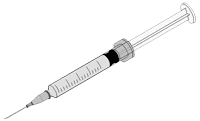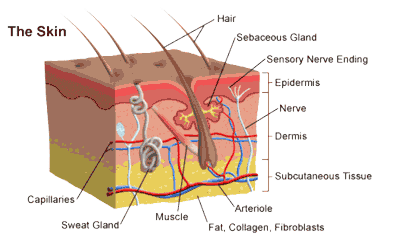The words we learn today come from the world of skin and skin specialists.
Have you ever treated infections on your skins?
Have you ever been to a skin doctor?
Have you ever visited a dermatologist?
Well, as you might have guessed by now, the word dermatologist means a ‘skin doctor’.
It is based on the Greek root: ‘derma’, meaning ‘skin’.
There are some very interesting words based on the same root (illustrated with the help of a picture here):
 Pachyderm:
Pachyderm:
1. Any of the thick-skinned, nonruminant ungulates, as the elephant, hippopotamus, and rhinoceros.
2. An elephant.
3. A person who is not sensitive to criticism, ridicule, etc.; a thick-skinned person.
We can learn this from the thick-skinned mammal: elephant. In case a person is like, he is one not overly given to emotions and sentiments.
 Taxidermy:
Taxidermy:
The art or operation of preparing, stuffing, and mounting the skins of dead animals for exhibition in a lifelike state.
Just like this stag head on the right is a taxidermists product, stuffed and hung up on the wall.
 Hypodermic:
Hypodermic:
Hypodermic needles are those that are injected beneath the skin. The word derives itself from the root ‘hypo’ which means ‘under’, and combines with derm to lend itself the meaning it has.
Dermatitis:
Dermatitis is a bad word, bad in terms of what is represents (a word in itself cannot be bad, can it?). It is the inflammation of the skin; skin becomes itchy and may develop blisters.
Last but not the least, let us study one more skin relate word: Epidermis.
 Epidermis is the outer layer of the skin covering the exterior body surface of vertebrates. In simple terms, it is the outermost layer of our skin.
Epidermis is the outer layer of the skin covering the exterior body surface of vertebrates. In simple terms, it is the outermost layer of our skin.
Epidermis comes from the roots ‘ep,epi-’. It is a multi-faceted root and its meaning generally can be the following: ‘above, over, on, upon; besides; in addition to; toward; among’.
In the current context, the root takes the meaning ‘above, over or on’. Have a look on the right to see what exactly the epidermis looks like.
There are actually quite a few interesting words based on the root ‘epi,ep’. Let us add 2 such words to our vocabulary:
1. Epicentre: This is a word we hear in context to earthquakes. The epicentre is ‘a point, directly above the true center of disturbance, from which the shock waves of an earthquake apparently radiate.’ In simple words, it is a point on the earth directly above the one where the quake originated. Remember, it takes the meaning of the root within it: directly above.
In general terms, epicentre is used to represent a focal or central point of something.
2. Epidemic: It carries the following meanings:
1. Widespread, over or among many people at the same time; such as, a disease.
2. A special reference to a human contagious disease.
3. The rapid widespread occurrence of a fad, fashion, etc.
Epidemic is actually a merger of two roots: epi(which means among here) +demos (which means people). Thus it becomes a disease spread among the people.
Reference for this chapter: Word power made easy by Norman Lewis, session 5











Very nice and helpful to enrich vocabulary
Thanks